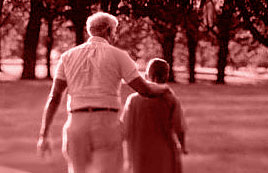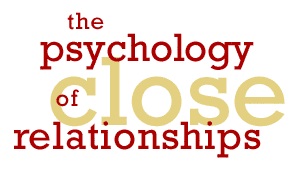








|
Familiarity Leads to Predictability
Why do we come to prefer those with whom we have more contact? The short answer is that frequent contact -- especially if it is
coincidental or spontaneous, not planned -- leads to familiarity and familiarity leads to predictability.
Technology also affects our fondness for the familiar. Consider the convenience and vividness of e-mail! Not only can you rely on
electronic messages to increase contact with coworkers and personal acquaintances, you can use it to establish new relationships.
Perhaps you "encounter" someone through an email referral or a chat room. Frequent correspondents, even if you have not met "in person,"
become a part of your routine communications.
(In the 1998 movie, "You've Got Mail," characters played by Meg Ryan and Tom Hanks meet in a book chat room, email under
pseudonyms and fall in love -- though, unbeknownst to them, in real life they are adversaries. Their initial attraction grew through
mere exposure and the familiarity it fostered, but the conflict in the movie arises because each sends only what he or she wishes to say
about themselves, selectively and even perhaps deceptively. Keep this in mind if you are involved in Internet chats -- including here.)
The more contact you have with someone, the more familiar he or she becomes, at least by sight. Even if you never speak to each
other, you learn things about each other: where you park, where you shop, what movies you rent, your favorite flavor ice cream or whether
you buy dog food or cat treats. Each piece of data implies other information, such as what else you might have in common with each
other. But even more basic than this is the fact that familiar people are predictable people. And we really
like predictability in our world.
The Lesson of the Man in the Black Bag
One social psychologist tells the story of how, in the 1970s, a student at his campus regularly attended class clad head to foot in a
giant black bag. The bagged student, a male to judge by his protruding feet, never spoke to anyone and no one ever saw his face.
Ridiculed at first, "Black Bag" was eventually no longer seen as special and was treated as yet another classmate, if an eccentric
one. Eventually, the class even acted affectionate toward him, defending his right to be bagged when class visitors, seeing him for
the first time, made fun of him. And on the last day of class, he was applauded by his classmates.
In this story, "Black Bag" was "liked" superficially on the basis of his predictable class attendance in his noticeable attire. He was
not befriended in the course of conversation and social activity. With no exchange of names or words, the classmates came to like the Black Bag -- but why? Because
he was predictable. He was consistent in his attendance, seating choice and attire. His classmates could count on him to be in the same place at the same
time, in the same black bag. People didn't actually get to know him but they liked him strictly on the basis of mere exposure: the more they encountered him, the better others liked him.
Predictability eliminates guesswork and reduces risk. Predictable people seem safer, more like us, and they make our lives easier. We
come to like those who make our lives easier in this way.
Once established, a friendship or romance may not require the same frequency of interaction to maintain closeness. Lovers make a
commitment to stay true to each other despite being separated. Many couples survive and even come to prefer "commuter" partnerships, in
which they occupy distant residences much of the time, or are parted by one partner's work or military assignments. Best friends grow up
and move away from each other, but still find that annual visits or monthly phone calls enable them to immediately pick up where they
left off, as if no time had passed. The proximity effect, then, wields the most power early in attraction, before an intimate
relationship has been established.
What Would Mary Richards Do? Mistaking Exposure for Familiarity
Or consider the mere-exposure effect of television programs. Night after night you see national or local newscasters, smiling
right at "you," as they relate the news or offer sympathy for the victims of tragedy. Does this frequent, one-way "contact" create a
feeling of knowing? In the 1981 movie "Eyewitness," a janitor (William Hurt) has such a crush on a local newscaster (Sigourney
Weaver) that when a murder is committed in the office building he cleans, he pretends to know something about the crime in order to
make himself more interesting to her. But he does not, of course, really "know" anything about her other than her newscaster persona.
We create in our minds our preferred images of others as we encounter or merely watch them. It is these images that influence us
and for which we feel affection. Researcher Pamela Kalbfleisch calls these parasocial relationships because they seem to develop
alongside (in parallel with) real social relationships.
One respondent told Kalbfleisch that an important model for her was the character "Mary Richards" portrayed by actress Mary Tyler
Moore in her 1970s television program. Before making a choice -- what to where, whether to date someone -- this woman asked herself,
"What would Mary Richards do?" She felt a kindship with the fictional character who appeared on her television once a week -- more
frequently than some people see their real-life close friends! This is another way that proximity operates to increase liking. It also
serves as a warning to those prone to worshiping others from afar. Such fantasies of relationships with the checkout girl or bartender
we see frequently are not (yet) real relationships because there is no back and forth. They are only about that early stage of
attraction brought about by proximity and physical attraction.
Contentment Not Contempt
Psychological research on the proximity effect argues that familiarity breeds contentment. But is this always true?
Could hanging around the object of your affection actually worsen your chances of fostering attraction? Of course it can. Perhaps
you've had an experience like this: you have had a serious disagreement with a neighbor, that neighbor's proximity -- the
likelihood that you two will see each other often -- is likely to inflame your negative feelings. Each time you see him or her, you
recall the disagreement and the feelings you have. If the person could just vanish for a few weeks, your feelings might have a chance
to subside. The saying "familiarity breeds contempt" seems designed for such situations.
Unrequited lovers listen-up: This reverse-attraction effect is called environmental spoiling. The recurrence of an unwanted experience in our
environment intensifies dislike for the experience and creates dislike for that particular location or activity. Why? We seem to
commit to keeping certain bad impressions, and with each new experience, we find ways to rationalize and strengthen that dislike.
The lesson? Before you become the increasingly-disliked person in someone else's sphere, assess how that person already feels
about you. If the feelings are not neutral, but actually negative, back off. Increased contact will not improve your interactions.
Some unrequited lovers might argue that the object of their affection "would really like me if he or she only got to know me
better . . ." But research indicates this is both idealistic and wrong-headed. In fact, once we form opinions -- about issues or
people -- we don't like to change our minds. If you have formed a disliking for someone you don't really know well, you probably
interpret new information about that person with a negative bias -- exactly as when someone who doesn't know you very well forms a
prejudice against you and ignores all evidence to the contrary. In such cases, frequency of contact works against interpersonal
attraction.
Attraction, then, does appear to have its passive, "force of Nature" aspects, as we have seen. You might form an interest in
someone who merely crosses your path, an event over which you have no control. Such situational influences as proximity, location,
accidental encounters and sheer luck all play a part in what and whom we are eventually attracted to. In our next session, we will explore
what happens when we move past situational factors to personal factors: qualities and features of the persons themselves.

|



